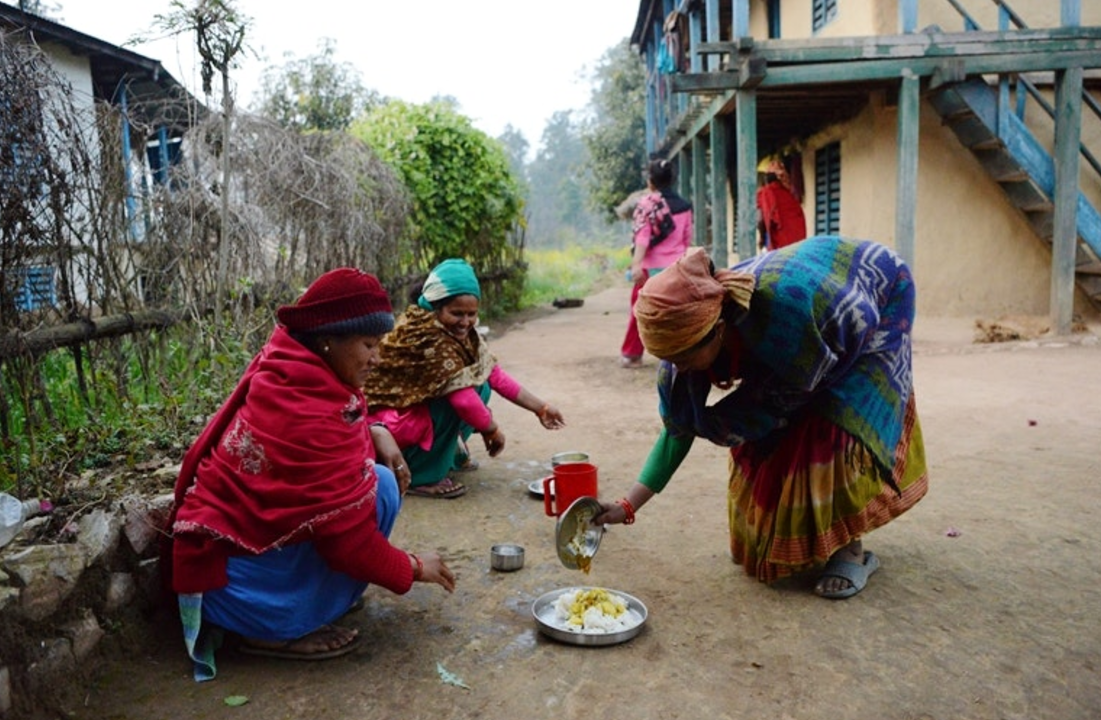This article originally appeared on Women & Girls, and you can find the original here. For important news about the global migration crisis, you can sign up to the Women & Girls email list.
By: Sophie Cousins
POKHARA – Nepal’s Parliament has criminalized the practice of banishing women and girls from their homes during menstruation and after childbirth.
Many communities in Nepal view menstruation as “impure,” deeming women “untouchable” when they have their period. As a result, families force women and girls to sleep in huts away from their homes when they menstruate – a custom known as chhaupadi.
Women and girls are not only banished from the home, but are also barred from touching food, religious icons, cattle and men.
The ancient Hindu practice has been in place for centuries in Nepal, as well as parts of India and Bangladesh.
Take Action: #ItsBloodyTime World Leaders Prioritize Menstrual Hygiene for Girls’ Education
The new law, which will come into effect next year, carries a three-month jail sentence, a fine of 3,000 rupees (about $40) or both, for anyone who forces a woman to follow the practice.
“A woman during her menstruation or post-natal state should not be kept in chhaupadi or treated with any kind of similar discrimination or untouchable and inhuman behavior,” reads the law, which was passed in a unanimous vote on Wednesday.
Read More: Nepali Teen Dies in Menstruation Hut After Starting Fire to Stay Warm
The Supreme Court ruled against the tradition in 2005, but it has continued to flourish, predominantly in Nepal’s mid- and far-western regions, where it is estimated up to 95 percent of girls and women are forced to practice chhaupadi.
The western parts of Nepal are characterized by high illiteracy and poverty, low development and significant gender inequality. A 2010 government study found that one-fifth of Nepali women practiced chhaupadi but in the mid- and far-west the figure was significantly higher.
Activists have cautiously welcomed the law, describing it as a step in the right direction.
Read More: Young Woman Dies in Menstruation Hut in Nepal
“The forced isolation and forced stigmatization of women [to believe] they are impure and have to go away from their homes has created not only psychological fear for women but also for their children,” says Mohna Ansari, a member of the National Human Rights Commission of Nepal who was part of the campaign to ban the practice.
The issue was thrust into the spotlight last year, after two chhaupadi-related deaths in the far-western district of Accham, which had previously been declared “chhaupadi-free.”
One woman died of smoke inhalation after she lit a fire for warmth; the other death remains unexplained.
Read More:Kenya Will Give Free Menstrual Pads to Girls
Last month, an 18-year-old woman from Dailekh in western-central Nepal died from a snake bite while sleeping in a shed.
The Rural Village Water Resources Management Project, which works on improving access to sanitation, found that in the last eight months five women have died due to chhaupadi.
Aside from deaths, the practice has been linked to wide-ranging psychological and physical illnesses. Research from grassroots organization Action Works Nepal found that 77 percent of girls and women felt humiliated during their periods, and two-thirds reported feeling lonely and scared when sleeping in cowsheds, which are not only unhygienic but also potentially dangerous.
The United Nations has found the custom makes women and girls more susceptible to diarrhea, pneumonia and respiratory diseases. They are more vulnerable to rape and abuse when isolated in sheds, and there is an increased risk of infant and maternal death when mother and baby are banished to a shed after birth.
While women’s rights activists have applauded the criminalization of chhaupadi, many are concerned that a law alone is not enough to end the practice.
Radha Paudel, Action Works Nepal’s founder and a menstrual rights activist, said there was more work to do to make sure the law covers all discriminatory practices.
“I am happy because something is better than nothing,” she said. “But this legal provision is incomplete in many ways because it failed to define the concept of chhaupadi properly.”
She explained that the law failed to take into account the nuances of chhaupadi in different parts of Nepal and failed to address all the 45 restrictions that come with the practice, which include a ban on bathing and restrictions to women’s diets – they are only allowed to eat flat bread while menstruating.
“The law speaks about the visible things only: the banishing of women to a shed outside.
“But in Kathmandu, for example, many middle- and upper-class families rent an extra room where they send the girl during her period,” she said.
Activists are also concerned that the law will not be enough to change people’s deep-rooted beliefs. Why, they ask, would a law override a practice that is written in Hindu scriptures?
“Smashing deep-rooted stigma and taboos is not an easy task,” said Pragya Lamsal, a women’s rights activist and development worker based in Nepal’s capital, Kathmandu.
“I think the government needs to mobilize local leaders, teachers, priests [and] civil society members in awareness campaigns, because locals who are practicing the tradition are the core agents of change.”
Looking ahead, she is optimistic that change is on its way, albeit slowly.
She believes young people – those who have been following the tradition because they were afraid of being rejected by the community – now have the opportunity to make a stand, knowing they have the law on their side.
“Now the younger generation can speak out,” she said.
“If implemented effectively, the decision to criminalize chhaupadi could be the end of an era of seclusion and banishment of menstruating women.”
